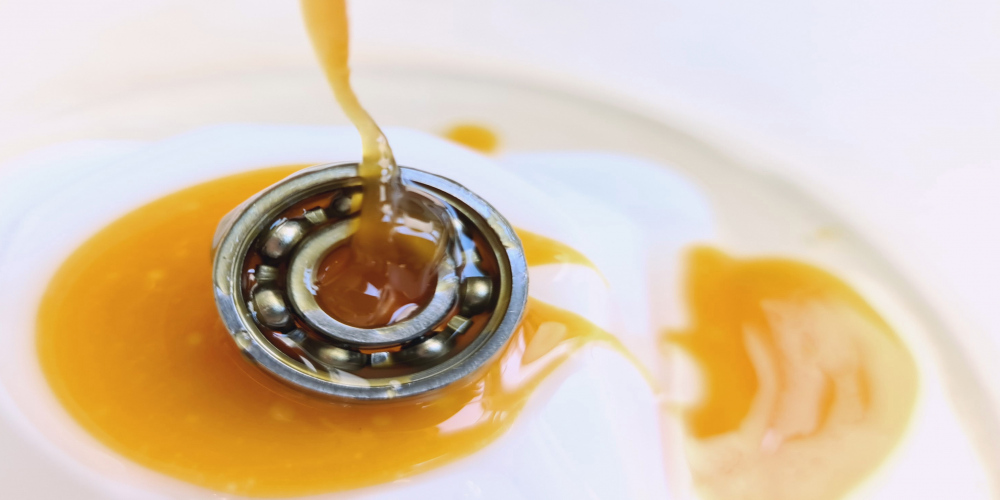According to the current state of the art, lubricants are mainly produced on the basis of mineral oils. Although vegetable oils are already being used for biolubricants, the proportion is still very small. Both have one thing in common: oil-based lubricants are particularly susceptible to oxidation. To increase stability, they are therefore mixed with additives that serve as antioxidants. To make new products available in the spirit of the bioeconomy, the Fraunhofer Institute for Process Engineering and Packaging IVV has developed a sustainable and environmentally friendly alternative to conventional, mineral oil-based antioxidants. They consist of bio-based extracts obtained from residual materials from the agricultural and food industries. With the high antioxidant potential of these secondary plant substances, it has been possible to realize purely plant-based antioxidant additives for technical applications.
In the bio-based lubricant systems already available, development for more sustainable products has so far focused mainly on the base media rather than the added additives. Additives for lubricants are active ingredients that are mixed into the base media. They impart physical and/or chemical properties to the products that are required for lubrication but are not present in the base media. Frequently used additives are mainly oxidation, corrosion and wear protection additives as well as detergents, emulsifiers, defoamers and viscosity index improvers. Lubricating oils tend to oxidize under the influence of heat and oxygen. This decomposition process is accelerated by acid reaction products and traces of metals. This leads to an aging process in which acids as well as varnish‑, resin- and sludge-like deposits are formed, most of which are insoluble in oil. An increase in viscosity and gumming of the lubricant are the result, which shortens the lifetime of the lubricant. Antioxidants therefore represent an essential additive group used in almost all lubricant systems.
Biobased extracts with high technofunctionality and increased active potential
For this large additive group, which plays a crucial role in increasing the stability of oil-based lubricants, the Fraunhofer IVV has developed a sustainable and environmentally friendly alternative to conventional mineral oil-based antioxidants. Bio-based extracts were obtained as part of a research project. They have an increased efficacy potential for a completely new generation of additives. For the production of the additive alternatives, residual materials from the food and agricultural industries are used that could not be put to any use until now. Some of these residues contain valuable substances whose properties make them suitable for technical applications.
Due to their extremely high functionality, the secondary plant substances they contain can replace synthetic additives in technical products and thus increase recyclability and biodegradability. Plant antioxidants, for example, exhibit high oxidation protection, but it is not sufficient in all cases. The challenge was to achieve an antioxidant system through the targeted combination of different plant molecular components that is characterized by the mutual, supportive interaction of individual molecules.
The way to industrial production is paved
“With our work, we were able to show that by varying the extraction parameters and adjusting them, the antioxidant potential of the plant extracts obtained can be influenced in a very targeted manner. This knowledge is of crucial importance for the functionality of plant extracts. In addition, we have developed a process for extracting plant raw materials that is tailored to obtaining antioxidant extracts for the technical industry. This lays the foundation for the industrial production of the extracts.”
- Dr. Sandra Kiese, Project Manager
In the research project, the institute also identified very effective extract combinations that can also be used stably in lipophilic lubricant systems and endowed with technofunctional properties. In lipophilic product formulations, very high antioxidant effects could be achieved in this way, which are often not attained in this form even with conventional antioxidants. The scientific and technical findings form the basis for the development of further bio-based lubricants and additives.

















